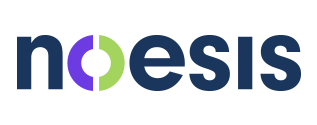If the recent coronavirus outbreak has taught us anything, it’s that companies need to be prepared to address not just health concerns, but mental health as well.
In Canada, half a million people suffer from mental illness in the workplace. Add to that the rising fear and uncertainty the coronavirus is causing, and that number could soar.
But while coronavirus accentuates the need to make the workplace physically and mentally safe, Health Canada recognized the need long before the outbreak, creating the National Standard of Canada for Psychological Health and Safety in the Workplace – a global first.
The standard is a set of recommended guidelines, tools and resources to prevent psychological harm and promote psychological health.
The standard is voluntary, however the commission says a company’s duty isn’t: “there are seven branches of law that emphasize an employer’s duty to protect, promote and accommodate psychological health and safety.”
Mental illness costs $50 billion a year and affects 20% of Canadians. That means in any given week, 500,000 Canadian are unable to work due to mental health problems or illnesses.
Meeting the Standard Everyday
So what is a psychologically safe workplace? It doesn’t just mean addressing stressful environments that contribute to the rise of mental health problems and illnesses, it also means supporting leaders, teams and employees to optimize their performance, increasing productivity and spurring innovation.
In fact, smart leaders are integrating psychological safety training into everything they do, recognizing it can go a long way to improving the bottom line. Google’s internal study of their highest-performing teams revealed their ‘secret sauce’ was creating a psychologically safe environment in which employees feel they can fully engage and collaborate, to the benefit of the organization.
But you don’t have to be Google to be able to deploy psychological safety training to your workforce.
Canadians Leading the Pack
Two Canadian companies are ahead of the curve when it comes to creating and offering courses in psychological safety via eLearning and – not surprisingly – they’ve seen an uptick in interest in their courses among corporations and non-profit organizations alike.
Calgary-based Noesis Learning, offers online psychological safety training for all levels of employees, manager and executives, using neuroscience as its foundation. The course, called Your Brain on Safety™, reveals the six core conditions for psychological safety and outlines what leaders need to do to foster a workplace environment where people can perform at their best. It also shares recent brain facts and useful communication approaches to transform workplace productivity and engagement.
Noesis partnered with Xpan Interactive to bring the course to life. As leaders in their field with an eye to best practices, Xpan, which develops digital learning solutions for companies globally, was a natural choice. For Xpan, it’s not just about teaching psychological safety, it’s also about creating a course that is effective, engaging and that can be delivered anytime, anywhere, on any device.
Research shows that a mix of visual and verbal cues – such as combining on-screen pictures, engaging narration, effective examples, pop quizzes and relevant questions – spurs engagement, highlighted to great effect in Your Brain on Safety™.
As companies struggle to navigate the current global health crisis, the ability to provide psychological safety training, deployed through the digital realm, has never been more important – for employees’ mental health and for the bottom line.


Recent Comments